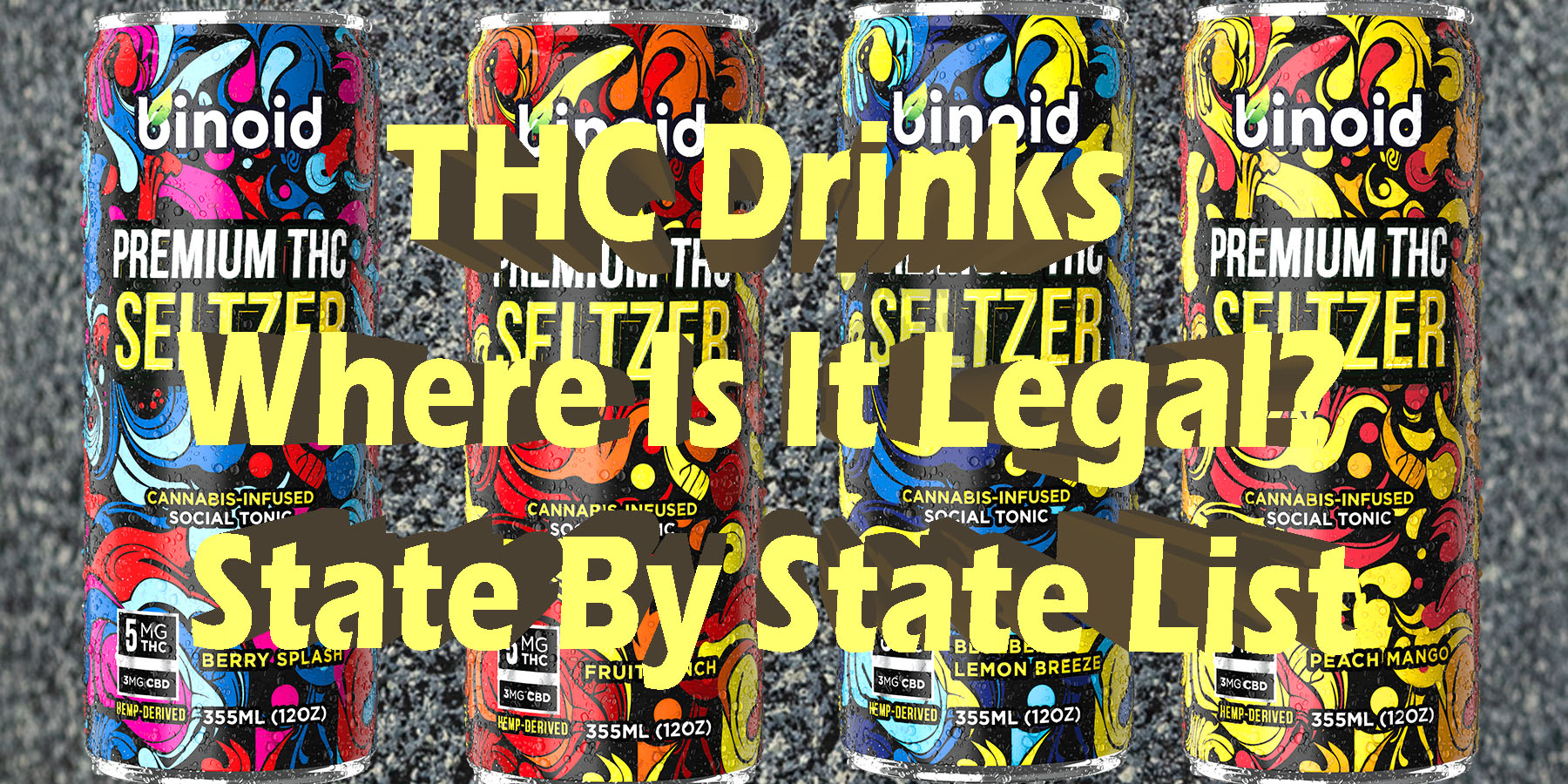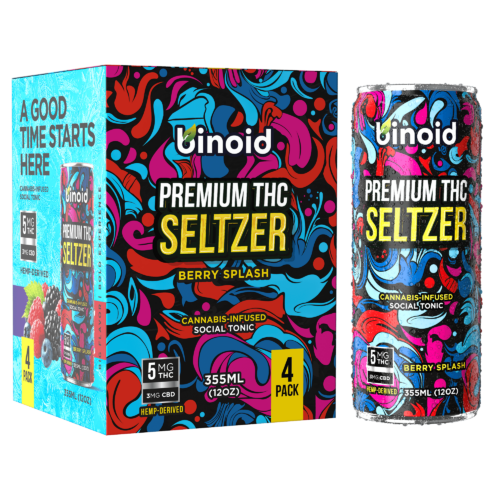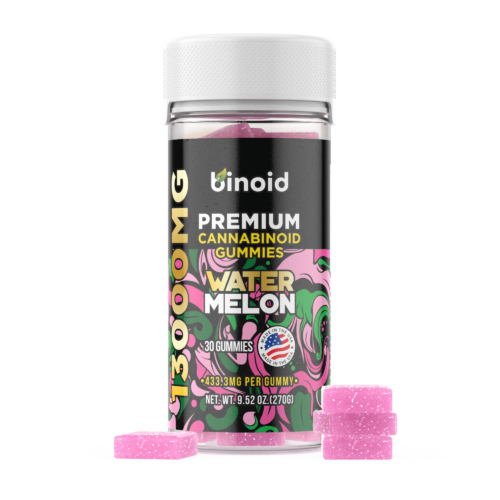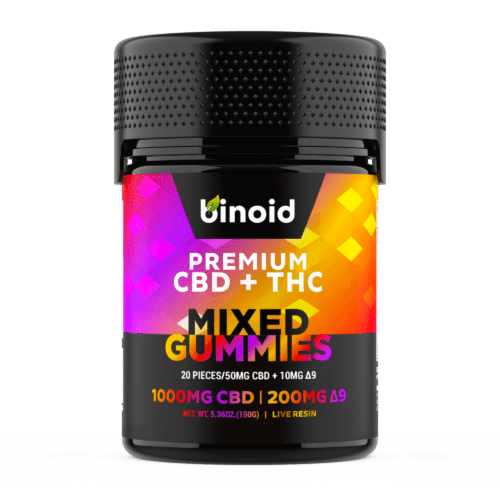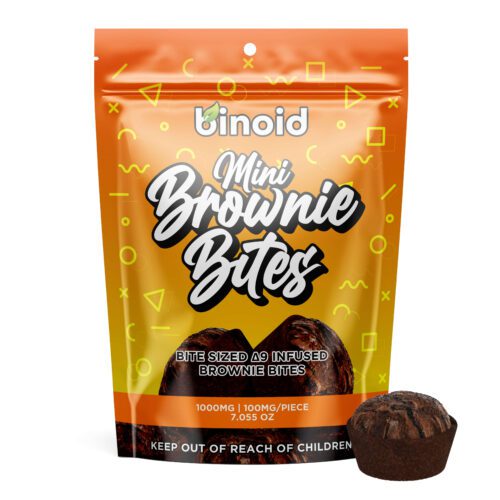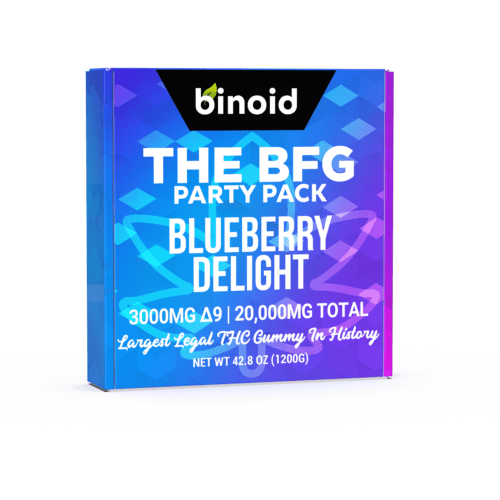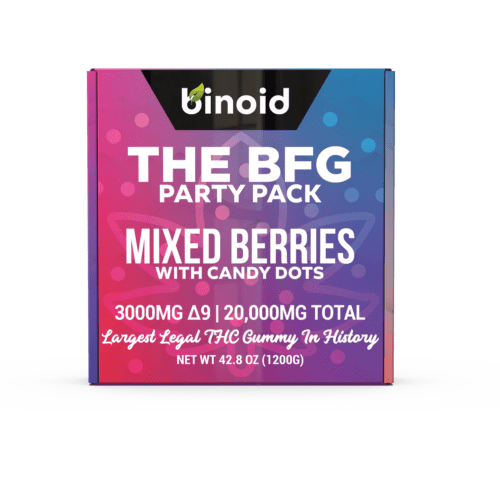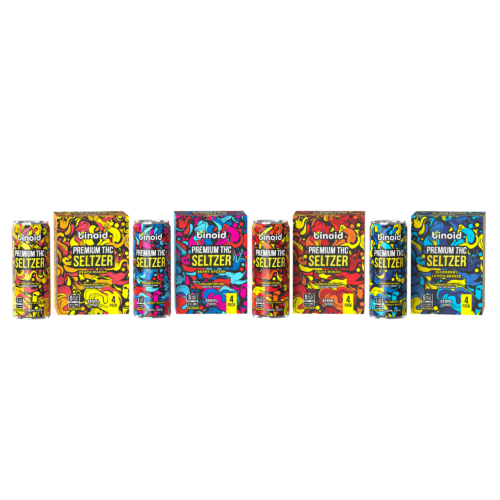The classic beer and wine selection at your local store is getting a radical new neighbor. A vibrant, bubbly, and entirely different kind of adult beverage is rapidly carving out its own space in coolers and on bar menus across America. We’re talking about THC-infused drinks that offer a unique sense of bliss and euphoria in every can or bottle. This is more than just a fleeting trend; it’s a cultural shift, a complete reimagining of how we unwind, socialize, and enhance our experiences. The sound of a can cracking open is no longer just about alcohol; for millions, it’s the start of a chilled-out journey.
But as this exciting new world of cannabis beverages blossoms, it brings with it a dizzying and often confusing legal landscape. The freedom to enjoy a THC-infused seltzer at a backyard barbecue in one state can vanish the moment you cross the border into another. Is that THC lemonade you’re seeing all over social media legal to order to your home? Can you walk into a store and buy a THC soda for a relaxing evening? The answer is a complex tapestry woven from federal law, individual state mandates, and a critical, game-changing distinction: whether the THC is derived from hemp or its more regulated cousin, marijuana. For the everyday person, trying to navigate this terrain can feel like trying to solve a puzzle with pieces that are constantly changing shape.
This is where the confusion ends. Consider this your definitive, all-encompassing guide to the legal world of THC drinks in the United States. We will cut through the noise and legal jargon, taking you on a state-by-state tour to reveal exactly where these beverages are welcomed, where they are restricted, and what specific kinds of products you can actually find.
To Buy THC Drinks Click Here
Recommended products
What are THC Drinks?
Before having your questions answered and your uncertainties cleared up, we gotta provide some more information of the beverages themselves. At its core, a THC drink is a ready-to-consume beverage that has been infused with a precise, measured dose of Tetrahydrocannabinol (THC) – the most well-known compound in the cannabis plant and is primarily responsible for the feelings of bliss and the shift in perception many people associate with its use. These drinks are crafted to be approachable and convenient, presenting the effects of cannabis in a familiar format. The true innovation lies in the science that allows the naturally oil-based THC to blend perfectly with water-based liquids, creating a consistent, shelf-stable, and enjoyable product. Not to mention, a discreet and straightforward way to partake.
The current market for THC drinks is a vibrant landscape of diverse options, with each category defined by its base ingredients, production methods, and typical flavor profile. The creation of these beverages hinges on the science of emulsification, a process that takes a refined cannabis extract and makes it completely dispersible in liquid, opening up a world of culinary possibilities for producers and consumers alike. Hence, the types of THC drinks you’ll encounter are:
Recommended products
THC Seltzers: This category is defined by its simplicity and minimalist ingredient profile, appealing to health-conscious consumers. The foundation of a THC seltzer is purified, carbonated water. The production process involves infusing this water with a nano-emulsified THC distillate, which ensures a clear appearance and rapid mixing. The subtle taste is derived not from sugar, but from natural fruit essences or extracts, like lime, grapefruit, or raspberry. They are almost universally packaged in slim 12-ounce aluminum cans, a choice that is both recyclable and effective at protecting the cannabinoids from light, which can cause degradation over time.
THC Sodas: These beverages are designed to replicate the indulgent and sweet experience of traditional carbonated soft drinks. The manufacturing process begins with a syrup base composed of water, a significant amount of a sweetener, and a proprietary flavor blend, such as cola or root beer. A pre-measured dose of THC extract is then infused into this base before it is carbonated and packaged. Given their composition, consumers should pay close attention to the type of sweetener used, as it is a defining ingredient. Packaging often uses retro-style branding on standard aluminum cans or classic glass bottles to evoke a sense of nostalgia.
THC Waters: THC-infused waters are crafted for the purist, with a focus on clean hydration and a straightforward delivery of THC. Their ingredient list is typically the shortest of any category, consisting of just purified, distilled, or mineral-rich spring water and a tasteless, colorless, water-soluble THC isolate or distillate. Most varieties contain no sugar, calories, or additional flavors, although some may feature a very delicate hint of a natural fruit essence. The packaging is often designed to look clean and minimalist, utilizing clear or lightly tinted PET plastic bottles or sleek glass bottles, much like premium bottled waters.
THC Lemonade: This is a classic non-carbonated beverage created from a base of lemon juice, water, and a sweetening agent. The production involves creating large batches of lemonade, where the balance of tartness and sweetness is carefully controlled. A THC emulsion is then blended into the batch to ensure even distribution of the active ingredient. The type of sweetener used is a key variable in these drinks, ranging from traditional sugar to natural alternatives. THC lemonades are packaged in various formats, including single-serving cans and glass bottles, as well as larger, multi-serving resealable jugs.
THC Tea: This category includes both ready-to-drink (RTD) iced teas and traditional tea bags for home brewing. For RTD versions, large quantities of black, green, or herbal tea are brewed using real tea leaves, which are then cooled and often sweetened. A THC extract is then emulsified and mixed into the tea before packaging in bottles or cans. For infusible tea bags, a powdered, water-soluble THC is precisely mixed with the dry tea leaves and other herbs before being portioned into individual bags and packaged in a standard cardboard tea box. The ingredients often include the tea itself, a sweetener, and sometimes citric acid for preservation.
THC Coffee: There are two primary production methods for THC coffee. The first involves infusing whole roasted coffee beans with a THC distillate oil; the porous beans absorb the oil, and the THC is extracted during the home-brewing process. The second method, used for ready-to-drink products, involves brewing a large batch of coffee as a cold brew, into which a liquid THC emulsion is blended before it is canned or bottled. Besides coffee and THC, these drinks may contain milk, sugar, or other flavorings, making the full ingredient list important to review. Packaging includes airtight bags for coffee beans or cans and bottles for cold brew.
THC Cocktails: These are sophisticated, non-alcoholic beverages designed to mimic the complex taste profiles of traditional cocktails. Their creation is an exercise in mixology, involving the careful layering of flavors from natural fruit juices, botanical extracts, bitters, and spices to replicate drinks like a margarita or a Moscow mule. A THC emulsion is then infused into this complex, non-alcoholic base. The ingredient list can be long, reflecting the complexity of the flavor profile, and often includes various natural and sometimes artificial flavorings. Packaging is typically in smaller, single-serving cans or decorative glass bottles to reflect their premium positioning.
THC-infused Wines and Beers: The creation of these non-alcoholic products is a highly technical process. It begins with the full production of a traditional wine or beer. This is followed by a dealcoholization step, where the alcohol is gently removed using methods like vacuum distillation or reverse osmosis, aiming to preserve the original flavor. Finally, a precise dose of a water-soluble THC emulsion is infused into this non-alcoholic base. The ingredient list will be similar to that of their alcoholic counterparts, minus the alcohol. Packaging is designed to be almost identical to standard beer cans, beer bottles, or wine bottles.
THC Drink Mix: This product category is all about convenience and consists of a dehydrated powder or a liquid concentrate. To create the powder, a THC nano-emulsion is bonded to a carrier powder, like a type of maltodextrin, and then spray-dried into a fine, soluble substance. This is then mixed with sweeteners, flavors, and anti-caking agents. Liquid concentrates are essentially shelf-stable, concentrated THC emulsions with added flavors and preservatives. The ingredient list for these mixes can be extensive, making them a key category for label-conscious consumers to scrutinize. Packaging is usually single-serving sachets or small, multi-serving dropper bottles.
Recommended products
The general effects of a THC drink are largely defined by their onset and duration, which can differ notably from other methods of consumption. Thanks to the use of Nanoemulsion technology in many beverages, the THC can be absorbed by the body much more quickly than from a traditional edible. This can lead to an onset of effects in as little as 10 to 20 minutes. This rapid feedback is a crucial feature, as it allows a user to better assess the effects in real-time and manage their experience. The duration of the effects is also often shorter than that of edibles, making for a more manageable journey that doesn’t necessarily consume an entire day, a characteristic that appeals to many users.
The audience for THC drinks is remarkably diverse and continues to grow as the perception of cannabis evolves. A major segment of this audience includes individuals seeking alternatives to alcohol. They are drawn to the ability to participate in social rituals with a beverage that provides a pleasant buzz, but without the well-known downsides of alcohol. Another significant group is composed of wellness-minded consumers who value the smoke-free nature of the product and actively seek out options that are low in sugar and calories and made with all-natural ingredients. This also includes “canna-curious” newcomers, who find the familiar and controlled format of a beverage to be a much more approachable entry point into the world of cannabis than other, more traditional methods.
Recommended products
The Foundation as it Pertains to the Federal Law and the 2018 Farm Bill
At the federal level, the legality of THC-infused drinks hinges on a pivotal piece of legislation: Agriculture Improvement Act of 2018, more commonly known as the 2018 Farm Bill. This act federally legalized the cultivation and sale of industrial hemp, which is defined as cannabis containing no more than 0.3% Delta-9 tetrahydrocannabinol (THC) on a dry weight basis. This distinction is crucial. It effectively created two categories of cannabis: hemp, which is legal under federal law, and marijuana, which remains a Schedule I controlled substance.
This legal loophole paved the way for the burgeoning market of hemp-derived THC products, including a wide array of beverages. As long as the THC in a drink is extracted from federally compliant hemp and the final product adheres to the 0.3% Delta-9 THC threshold, it is considered federally legal. This has allowed for the interstate sale and shipment of these products, making them accessible in many parts of the country where recreational marijuana is still prohibited.
However, it is essential to understand that federal legality does not equate to universal legality. The 2018 Farm Bill grants states the authority to regulate hemp and hemp-derived products within their own borders. This has resulted in a patchwork of state laws, with some states embracing the hemp-derived THC market, others imposing strict regulations, and a few outright banning these products.
Furthermore, the Food and Drug Administration (FDA) has yet to establish a clear regulatory framework for CBD and THC as food and beverage additives. While they have issued warning letters to companies making unsubstantiated health claims, their overall enforcement in the hemp-derived beverage space has been limited. This lack of a unified federal regulatory structure adds another layer of complexity to the market.
Another important federal body is the Alcohol and Tobacco Tax and Trade Bureau (TTB), which regulates alcoholic beverages. The TTB explicitly prohibits the inclusion of controlled substances, including marijuana-derived THC, in alcoholic products. This means that you will not find federally regulated alcoholic beers or wines that are also infused with THC. The emerging category of THC-infused beverages is overwhelmingly non-alcoholic.
Recommended products
The Two Worlds of THC Drinks: Hemp-Derived vs. Marijuana-Derived
To fully grasp the legality of THC drinks, it is vital to differentiate between those derived from hemp and those from marijuana. Why? Well, because their legal classifications dictate entirely different regulatory pathways, directly impacting their legality, production standards, and consumer access, as this is how you’ll also have a better understanding of this fundamental divergence in general.
Hemp-Derived THC Drinks: These are the most widely available type of THC-infused beverage across the United States. They contain Delta-9 THC that has been extracted from legally cultivated hemp plants. The key is that the total Delta-9 THC concentration in the final product does not exceed the 0.3% dry weight limit. This allows for products to be sold in states that have not explicitly banned them, often through online retailers, smoke shops, and even some mainstream stores. These beverages come in a vast array of forms, including seltzers, sodas, waters, teas, and coffees, typically offering lower, more sessionable doses of THC, often in the range of 2.5mg to 10mg per serving.
Marijuana-Derived THC Drinks: These beverages are produced using THC extracted from marijuana plants, which contain more than 0.3% Delta-9 THC. The sale and consumption of these drinks are restricted to states that have legalized either medical or recreational marijuana. They are sold exclusively in licensed dispensaries and are subject to the state’s specific cannabis regulations, including possession limits, age restrictions, and testing requirements. These drinks can sometimes contain higher concentrations of THC than their hemp-derived counterparts and may include a wider variety of cannabinoids.
State-by-State Breakdown: Your Map to Legal THC Drinks
Now we move from the broad strokes of federal policy to the ground-level reality of what’s legal in your state. This is where the true complexity of the THC beverage market unfolds. The journey of a single can of THC seltzer from production to your hand is governed by a dizzying array of local laws. Some states have rolled out the green carpet, creating regulated but accessible markets. Others are cautiously dipping a toe in the water, while a few have put up a firm stop sign.
Hence why, we’ve compiled the detailed chart below. This isn’t just a simple “yes” or “no”. It’s your comprehensive map, detailing each state’s stance on both hemp and marijuana-derived drinks, outlining the crucial nuances of their regulations, and giving you a snapshot of the types of products you’re likely to find.
|
State |
Hemp-Derived THC Drinks |
Marijuana-Derived THC Drinks |
Key Regulations & Nuances |
Commonly Available Products |
|
Alabama |
Legal (Regulated) |
Medical Only |
HB445 brings hemp beverages under state ABC control (Jan 2026). Max 10mg THC/12oz container. No on-premise or online sales. Sold in grocery/liquor stores. |
Hemp seltzers, sodas. Market is adapting to new regulations. |
|
Alaska |
Legal & Permissive |
Legal (Recreational) |
Mature regulatory system for both hemp and marijuana. Adults 21+. Sold in licensed dispensaries and general retail. |
Wide variety of seltzers, sodas, infused waters, and mocktails from both hemp and marijuana sources. |
|
Arizona |
Legal & Permissive |
Legal (Recreational) |
Well-established, robust recreational market for adults 21+. Arizona prohibits powdered THC drink mixes. |
Extensive selection of seltzers, teas, lemonades, and more potent dispensary-grade beverages. |
|
Arkansas |
Legal Gray Area |
Medical Only |
State has cracked down on intoxicating cannabinoids, creating an uncertain market for hemp drinks. Marijuana drinks are for medical patients only. |
Availability is inconsistent. Consumers should exercise caution and verify product legality. |
|
California |
Legal & Permissive |
Legal (Recreational) |
World’s largest legal cannabis market. AB 45 regulates hemp products, ensuring they are tested and safe. Adults 21+. |
Unmatched variety: Artisanal seltzers, craft sodas, infused coffees, teas, wines, and mocktails. |
|
Colorado |
Legal & Permissive |
Legal (Recreational) |
A pioneering state in cannabis legalization. Clear regulations for both hemp and marijuana products for adults 21+. |
Vast market of seltzers, sodas, energy drinks, and other infused beverages available in dispensaries and retail stores. |
|
Connecticut |
Legal & Permissive |
Legal (Recreational) |
Recreational market is established. Hemp drinks are sold widely; marijuana drinks are in licensed dispensaries for adults 21+. |
Growing selection of seltzers and sodas. Market is expanding with new local and national brands. |
|
Delaware |
Legal & Permissive |
Legal (Recreational) |
Recreational sales are legal for adults 21+. Hemp products are also permitted. |
Market is still developing but expect seltzers, sodas, and teas to become more common. |
|
Florida |
Legal (Regulated) |
Medical Only |
Large hemp-derived market. State has proposed stricter limits on THC content for hemp products, so regulations may change. |
Wide variety of hemp-derived seltzers, sodas, teas, and drink powders available in specialty shops and online. |
|
Georgia |
Legal (Regulated) |
Medical Only (Low THC) |
Hemp products are legal for adults 21+ with regulations on testing, labeling, and retail. |
Good selection of hemp-derived seltzers and sodas available in vape shops and specialty stores. |
|
Hawaii |
Legal Gray Area |
Medical Only |
State has issued conflicting guidance on intoxicating hemp products. Caution is advised. |
Availability is inconsistent. Primarily found through online retailers willing to ship to the state. |
|
Idaho |
Illegal |
Illegal |
Zero-tolerance policy. Any product containing any amount of THC is considered illegal. |
None. |
|
Illinois |
Legal & Permissive |
Legal (Recreational) |
Strong recreational market for adults 21+. Hemp drinks are also widely available. Prohibits “happy hours” for hemp drinks. |
Diverse market including seltzers, sodas, infused waters, and tonics from both hemp and marijuana. |
|
Indiana |
Legal (Hemp-Only) |
Illegal |
Hemp-derived products are legal and sold, but the state remains conservative on cannabis overall. |
A growing selection of hemp-derived seltzers and sodas can be found in smoke shops and online. |
|
Iowa |
Legal (Regulated) |
Medical (CBD) |
State allows hemp-derived drinks but has specific regulations on potency (5mg/serving) and requires products to be sold in stores. |
A regulated but growing market for low-dose hemp seltzers and sodas. |
|
Kansas |
Illegal |
Illegal |
State law explicitly prohibits any product containing THC. |
None. |
|
Kentucky |
Legal (Regulated) |
Medical (Non-combustible) |
SB202 places hemp drinks under the state ABC. Max 5mg/12oz. Sold in liquor stores (June 2025), excise tax applies. |
Market shifting to regulated seltzers and sodas available through licensed distributors. |
|
Louisiana |
Legal (Regulated) |
Medical Only |
Consumable hemp is heavily regulated. Max 8mg THC per serving. Must be sold in state-licensed stores to adults 21+. |
Regulated market of hemp-derived seltzers and potions. Products are tested and tracked by the state. |
|
Maine |
Legal & Permissive |
Legal (Recreational) |
Long-standing, mature cannabis market for adults 21+. Permissive towards both hemp and marijuana products. |
Diverse selection of craft THC beverages, including sodas, seltzers, and elixirs. |
|
Maryland |
Legal & Permissive |
Legal (Recreational) |
Recreational market is fully operational for adults 21+. |
A rapidly expanding market with seltzers, teas, and other infused drinks becoming widely available. |
|
Massachusetts |
Legal & Permissive |
Legal (Recreational) |
Well-established dispensary network. The state ABCC has ruled that THC cannot be sold in liquor stores. Adults 21+. |
Wide variety of high-quality THC beverages, from low-dose seltzers to potent dispensary-only drinks. |
|
Michigan |
Legal & Permissive |
Legal (Recreational) |
A large, competitive cannabis market for adults 21+ with a huge variety of products. |
Extremely diverse market. Seltzers, sodas, infused tonics, shots, and elixirs are all common. |
|
Minnesota |
Legal & Permissive |
Legal (Recreational) |
Pioneered the low-dose (5mg/serving, 50mg/package) hemp beverage market. Sold in liquor stores, grocery stores, etc. for adults 21+. |
A national leader. Huge variety of locally produced and national brand THC seltzers, sodas, and waters. |
|
Mississippi |
Legal Gray Area |
Medical Only |
The state has taken a hostile stance toward intoxicating hemp-derived cannabinoids. |
Very limited and legally risky market. |
|
Missouri |
Legal & Permissive |
Legal (Recreational) |
Strong recreational market for adults 21+. |
Good selection of seltzers, sodas, and other infused drinks available in dispensaries and retail. |
|
Montana |
Legal & Permissive |
Legal (Recreational) |
Regulated cannabis market for adults 21+. |
Solid selection of THC beverages, primarily in licensed dispensaries across the state. |
|
Nebraska |
Illegal |
Illegal |
State law prohibits any product containing THC. |
None. |
|
Nevada |
Legal & Permissive |
Legal (Recreational) |
Major cannabis destination. Adults 21+. Products are sold in a highly regulated dispensary system. |
Wide array of seltzers, sodas, and infused mocktails, especially in tourist hubs like Las Vegas. |
|
New Hampshire |
Legal (Hemp-Only) |
Medical Only |
No recreational cannabis market, but hemp-derived products are generally available. |
Selection of hemp-derived seltzers and sodas, mostly in smoke shops or online. |
|
New Jersey |
Legal (Regulated) |
Legal (Recreational) |
New law places intoxicating hemp drinks under the Cannabis Regulatory Commission. Sold only in licensed dispensaries (adults 21+). |
Market consolidating to dispensaries. Seltzers and teas are common. |
|
New Mexico |
Legal & Permissive |
Legal (Recreational) |
Legal for adults 21+. A growing and diverse cannabis market. |
Expanding selection of seltzers, sodas, and traditional New Mexican-inspired infused beverages. |
|
New York |
Legal & Permissive |
Legal (Recreational) |
Recreational market is operational for adults 21+. Hemp-derived products are also widely sold. |
A large and diverse market with seltzers, sodas, and infused coffees available in dispensaries and bodegas. |
|
North Carolina |
Legal (Hemp-Only) |
Illegal |
Thriving hemp-derived market under the 0.3% Delta-9 THC rule. No recreational marijuana program. |
Extensive selection of hemp-derived seltzers, sodas, and teas available statewide. |
|
North Dakota |
Legal Gray Area |
Medical Only |
State law is unclear on intoxicating hemp products. |
Very limited and uncertain market. |
|
Ohio |
Legal & Permissive |
Legal (Recreational) |
Recreational market is now legal for adults 21+. The beverage market is expected to expand rapidly. |
Expect a surge in seltzers, sodas, and teas as the recreational retail framework is built out. |
|
Oklahoma |
Legal (Hemp-Only) |
Medical Only |
Large medical marijuana market. Hemp-derived drinks are available to the general public (21+). |
Good selection of hemp-derived drinks. A much wider variety is available to medical patients in dispensaries. |
|
Oregon |
Legal & Permissive |
Legal (Recreational) |
A mature, innovative cannabis market for adults 21+. |
Excellent variety of craft and artisanal THC beverages, including seltzers, sodas, and more unique concoctions. |
|
Pennsylvania |
Legal (Hemp-Only) |
Medical Only |
Hemp-derived products are widely available. No recreational program. |
Good selection of hemp-derived seltzers and sodas can be found in specialty shops. |
|
Rhode Island |
Legal (Regulated) |
Legal (Recreational) |
Competing bills exist: one to allow sales in liquor stores, one to ban them. Current sales are in dispensaries (adults 21+). |
Seltzers and sodas are available, but the retail landscape for hemp drinks is in flux. |
|
South Carolina |
Legal Gray Area |
Illegal |
State has taken legal action against some intoxicating hemp products, creating an uncertain environment. |
Market is legally risky and inconsistent. |
|
South Dakota |
Illegal |
Medical Only |
One of the strictest states. Hemp-derived intoxicating cannabinoids are considered illegal. |
None. |
|
Tennessee |
Legal (Regulated) |
Illegal |
HB1376 places hemp drinks under the state ABC, requiring licensing and taxation. No online D2C sales. |
Thriving market for hemp seltzers and sodas, now transitioning to a more regulated framework. |
|
Texas |
Legal (Hemp-Only) |
Medical (Low THC) |
Hemp drinks are legal under the 0.3% Delta-9 THC limit. Efforts to ban them have failed so far. |
A large and growing market for hemp-derived seltzers, teas, and ranch waters, especially in major cities. |
|
Utah |
Legal (Regulated) |
Medical Only |
Consumable hemp products are legal but regulated by the Department of Agriculture and Food. |
A regulated selection of hemp-derived beverages is available through approved retailers. |
|
Vermont |
Legal & Permissive |
Legal (Recreational) |
Recreational market is open for adults 21+. |
Good selection of craft-focused THC seltzers and sodas, reflecting the state’s local-first ethos. |
|
Virginia |
Legal (Regulated) |
Legal (Possession/Use) |
Intoxicating hemp products are regulated with THC limits. A retail marijuana market has not been established. |
Regulated hemp-derived seltzers and sodas are available in specialty stores. |
|
Washington |
Legal & Permissive |
Legal (Recreational) |
One of the first states to legalize. Mature and well-regulated market for adults 21+. |
Extensive selection of seltzers, sodas, shots, and other infused drinks available in licensed dispensaries. |
|
Washington D.C. |
Legal & Permissive |
Legal (Recreational) |
Adults 21+ can purchase from licensed dispensaries. |
Good selection of THC beverages available in the District’s regulated dispensaries. |
|
West Virginia |
Legal (Hemp-Only) |
Medical Only |
Hemp-derived products are generally available. |
A growing selection of hemp-derived seltzers and sodas can be found. |
|
Wisconsin |
Legal (Hemp-Only) |
Illegal |
Hemp-derived products, including THC drinks, exist in a legal space often called a “loophole” and are widely sold. |
Large market of hemp-derived seltzers and sodas available in smoke shops and specialty stores. |
|
Wyoming |
Legal (Hemp-Only) |
Illegal |
State is very conservative, but hemp-derived products adhering to federal law are generally tolerated. |
Limited availability, primarily through online retailers and in some smoke shops. |
Recommended products
The Future of THC Drinks in the USA
The legal landscape for THC-infused beverages is in a constant state of flux. As more states move towards legalizing recreational marijuana, the availability of marijuana-derived THC drinks will undoubtedly expand. Simultaneously, the federal government and individual states will likely continue to refine their regulations surrounding hemp-derived THC products. This could lead to a more standardized and regulated market, providing consumers with greater clarity and confidence.
For now, the key takeaway is that the legality of THC drinks in the USA is a tale of two markets: the federally legal, yet state-regulated world of hemp-derived beverages, and the state-legal, dispensary-exclusive realm of marijuana-derived drinks. By understanding the laws in your specific location and the source of the THC in your beverage, you can navigate this exciting and evolving new frontier of cannabis consumption with knowledge and assurance. From a refreshing THC seltzer on a summer day to a cozy THC-infused tea in the evening, the options for experiencing a different kind of buzz are growing every day.

